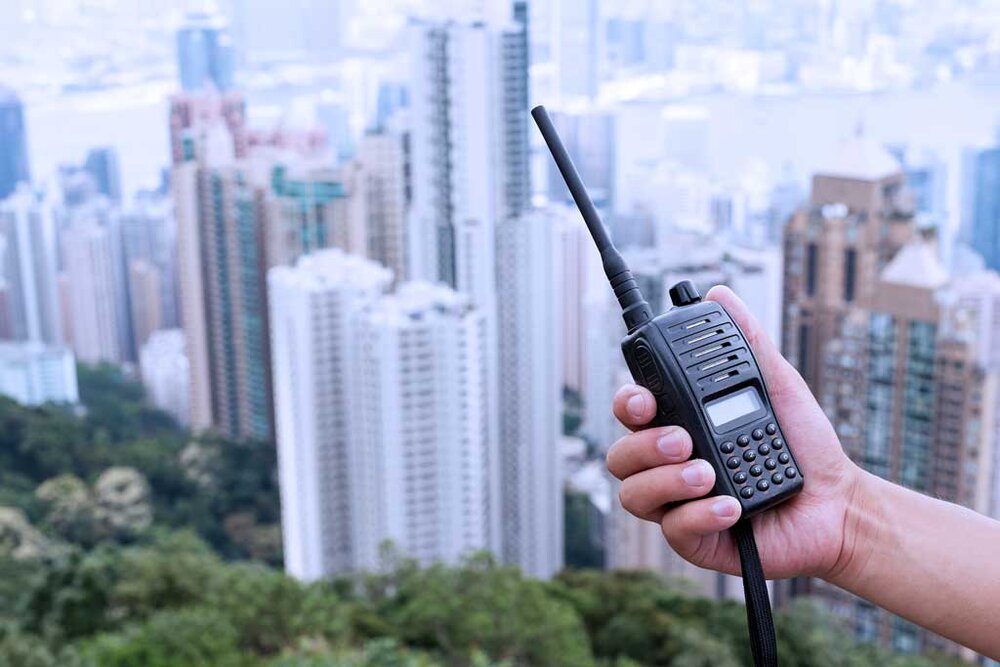Radio communication is a cornerstone of modern society, allowing us to connect with people and information from all corners of the globe. While many of us use radios on a daily basis, whether it be for listening to music or catching up on news, the concept of radio communication itself may seem mysterious and complex. However, at its core, radio communication is simply the transmission of signals through the air using electromagnetic waves. These signals can carry a wide range of information, from voice and music to data and images. Throughout history, radio communication has played a crucial role in various industries and has revolutionized how we communicate and stay connected. In this article, we will delve deeper into the world of radio communication, exploring its history, technology, and modern applications. From its humble beginnings to its current state, we will unravel the inner workings of this essential form of communication and how it has shaped the way we interact with each other and the world around us. So, let us tune in and discover the fascinating world of radiored.com.mx.
Definition of radio communication explained.
Radio communication refers to the transmission and reception of signals through radio waves in order to exchange information. It is a form of wireless communication that allows for the transfer of audio, data, and other types of information over long distances without the need for physical connections. The process involves the conversion of sound waves or electronic data into radio waves, which are then transmitted through antennas or similar devices. These radio waves travel through the air or space, and can be received by another radio receiver, allowing for the retrieval of the original information. Radio communication has been a vital means of communication for various industries and sectors, including broadcasting, aviation, public safety, telecommunications, and military applications. With its ability to reach wide areas and penetrate obstacles, radio communication has proven to be a reliable and efficient method of transmitting information globally.
Importance of clear communication channels.
In any communication system, whether it be radio communication or any other form, the importance of clear communication channels cannot be overstated. Clear communication channels are essential for effective and efficient transmission of information. Without clear channels, messages can be distorted, misunderstood, or even lost entirely. Clear communication channels ensure that the intended message is accurately received by the intended recipient, minimizing the risk of miscommunication and confusion. This is particularly critical in industries where real-time information exchange is crucial, such as emergency services, air traffic control, and military operations. By establishing clear communication channels, organizations can enhance productivity, safety, and overall operational effectiveness. It is imperative to invest in reliable and robust communication systems, as they play a vital role in ensuring seamless and accurate transmission of information.
Types of equipment used for communication.
Various types of equipment are utilized for communication purposes across different industries and sectors. One commonly employed device is the two-way radio, which allows for direct and instantaneous communication between individuals or groups. These radios are portable and often used in situations where mobility is necessary, such as in emergency response teams or security services. Additionally, telephones, both landline and mobile, are widely used for communication in everyday life and business settings. These devices provide voice communication over a network, enabling individuals to connect with others across vast distances. Another essential piece of communication equipment is the computer, which facilitates not only voice communication but also the exchange of data, documents, and multimedia content. Additionally, internet-based communication tools such as email, instant messaging, and video conferencing have become increasingly prevalent, providing efficient and convenient ways to communicate in real-time. As technology continues to advance, new types of communication equipment will undoubtedly emerge, further revolutionizing the way we connect and exchange information.
Advantages of using radio communication.
Radio communication offers several advantages in various industries and fields. Firstly, it provides reliable and instant communication, allowing for immediate coordination and response in critical situations. This is especially important in emergency services, where quick decision-making and effective teamwork can make a significant difference in saving lives. Furthermore, radio communication is not dependent on cellular or internet networks, making it a dependable option in remote locations or areas with limited network coverage. It also offers privacy and security as radio transmissions can be encrypted, ensuring confidential information remains protected. Additionally, radio systems can support group communication, enabling efficient coordination among multiple teams or departments. Overall, the advantages of using radio communication include reliability, accessibility, security, and efficient group communication, making it a valuable tool in various professional settings.












